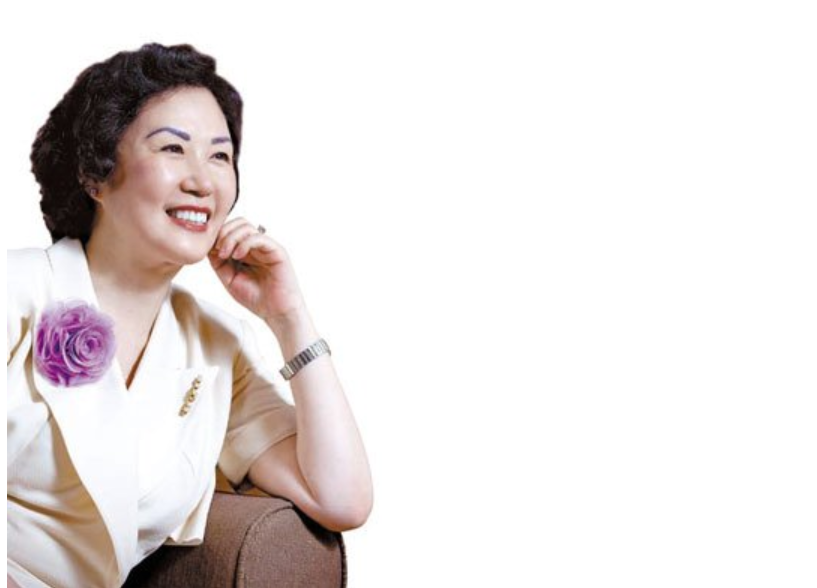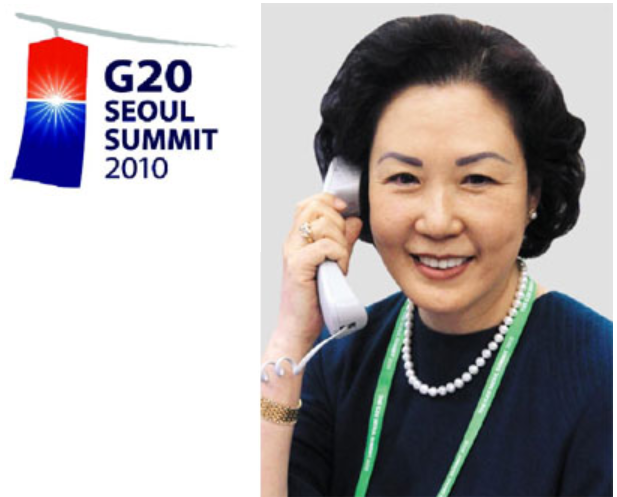Sue-Kyong Shin Vittas was interviewed by Womanup on January 31, 2019. Please see other interviews linked to the article: one with 중앙일보 (https://news.joins.com/article/4432709) and another with 조선일보 (https://www.chosun.com/site/data/html_dir/2010/11/11/2010111100019.html).

신수경 의전관님 – IMF, IT LEADER
Estimated reading time 6 min
Intro
1. WHAT IS YOUR LIFE MOTTO?
“Ask not what your country can do for you, ask what you can do for your country.” This quote resonates with my perspective in life wherein I focus most on how I can contribute to others, be it my loved ones, my employer/company, or my country. I think life is most fulfilling when we continuously think about how we can improve the lives of those around us.
Another favorite one, which is also the favorite of my eldest son, is “it’s amazing what you can accomplish when you don’t care who gets the credit.”
These are the mottos I do my best to act in accordance with.
2. DO YOU HAVE A MENTOR OR HAVE YOU HAD MENTORS THROUGHOUT YOUR LIFE? IF SO, HOW DID YOU MEET THEM?
I was very lucky to have my parents as mentors. My father was an exemplary civil servant for Korea and went on to become a renowned international civil servant. He had an honest, ethical reputation in both his personal and professional lives. I am so proud of his accomplishments in the development of the Korean economy and am so proud of my mother’s lifelong charity work to support the poor and underprivileged. My parents guided us with their actions more so than their words; “lead by example” was the mentality my parents instilled in me and I now try hard to do the same with my four children. Actions speak louder than words.

중앙일보 인터뷰
“IMF 한국인 직원, 채 1%도 안 되죠 … 국제기구서 일하려면 글 잘 써야 해요”
Career
3. COULD YOU SHARE BRIEFLY YOUR CAREER TO DATE?
Right after college, my first full-time job was as a statistical assistant in the International Monetary Fund (IMF) in Washington, D.C. I was planning to go to graduate school so had no intention of staying for long, but shortly after I began working the IMF advertised that they were looking to train those with backgrounds in economics, math, accounting, and statistics to become programmers that would work with their economists. I applied for the position and jumped at the chance to get training and venture further into international development. My sister and father had worked at the IMF and World Bank, respectively, so I was familiar with and excited about working for an international organization.
After my training in software development, I started my IT career and eventually advanced into a management role. I made decisions related to which operational processes within the IMF could be automated, and seeing the impact the technology made in administrative and financial transactions with member countries was so interesting and rewarding. I loved the work I did at the IMF.

조선일보 – 사람과 이야기
G20 ‘숨은 주역’ 자원봉사자 600명… 10대1 경쟁 뚫고 뽑혀 “역사적 순간을 함께 하는 건 행운”
4. WHAT WERE SOME DEFINING MOMENTS IN YOUR CAREER?
A defining moment for me was the realization that my actions affected more than just myself and the people surrounding me, and that by working at the IMF they also impacted the larger world. For example, when I was planning international events such as the G20 summit, I had to think very carefully about political ideologies and differences as I determined which ministers should sit where because how they were seated would affect the conversations they had. Throughout my career I was more interested in what was happening around the world and the impact of my work than in my compensation.
5. HOW HAVE YOU CHANGED OR DEVELOPED FROM YOUR EARLY-DAY CAREER SELF?
In the beginning, I was just doing my assignments and focused on getting the work done. As I stepped into management, I started caring more about the people and mentorship. This was also advice given to me by my father. He said that if you are in a managerial position, it is more important to groom and guide career paths than it is to make yourself look good to your superiors, that ultimately you need to think about your subordinates and their career growth. This shifted my perspective from the work itself to my teammates and the people I was managing. I wanted to make sure I was investing in them.
6. HAVE YOU WORKED IN KOREA? IF SO, WHAT WOULD YOU SAY WAS THE BIGGEST DIFFERENCE BETWEEN WORKING AS A FEMALE IN KOREA AND THE STATES?
I was in Korea in 2010 overseeing the G20 summit protocols. I don’t think the work culture in Korea 회식 in which you frequently go out drinking with your colleagues after work is a very productive lifestyle. I don’t drink so sometimes it was an ordeal trying to avoid drinks that were continuously offered to me. I also felt that the culture did not take women as seriously as the work culture at the IMF did. One has to do more to prove oneself. Of course, this is true in many western countries as well, but coming from my experiences at the IMF, I felt that it was more pronounced in Korea.
7. COULD YOU SHARE THE BIGGEST CHALLENGE YOU FACED AS A WORKING WOMAN?
This may have changed since work culture has become more flexible, but when I was working at the IMF, there was no such thing as “working from home” and you had to be present in the office all the time. Physical time management was the biggest challenge for me in trying to balance family obligations with my work schedule.
8. WHAT WOULD YOU SAY WAS A STRENGTH OF BEING A WOMAN IN A MALE-DOMINATED FIELD?
As a woman, I am great at fostering a vibrant and nurturing team environment. I initiated group lunches and one-on-one coffee chats which I believe fostered a strong team. I also noticed that the Korean social culture welcomes being friends with your colleagues and socializing outside of the office, e.g., playing golf or going on hikes on weekends with coworkers.

DON’T BE AFRAID TO TRY NEW THINGS
9. WHAT WAS THE BEST ADVICE YOU RECEIVED?
Don’t be afraid to try new things. This was another piece of advice I received from from my parents. In a literal sense, I eat everything because I am not afraid to try new things (especially food)!
10. WHAT MOTIVATES YOU?
Self-fulfillment. No matter how small the deed, I get satisfaction from the work or effort I made and from how it affects others in a positive way. When I was working for the IMF, knowing that my work was impacting the organization as well as the member countries in a positive way was very rewarding.

Future
11. WHAT ARE YOUR GOALS MOVING FORWARD?
I am currently the honorary ambassador of the Korea Tourism Organization and also the Secretary-General for the Korean International Women’s Foundation, which represents female leaders across 35 countries. In April, the Korean female leaders will meet in San Paulo, Brazil for a convention.
My goal is to promote networking among Korean female leaders around the world, to support their advancement in the global community, and to nurture international and professional expertise in the next generation of Korean women.
I would also love to transfer the knowledge that I gained from working at the IMF in IT and as Social/Protocol officer in the handling of the Annual Meetings to younger generations. I hope to promote their awareness of how important it is to have soft skills and the understanding of international etiquette.
12. LASTLY, COULD YOU SHARE ADVICE TO ASPIRING FEMALE LEADERS IN THE TECH SPACE?
Let your imagination run wild! In the technology world, you have to be creative. You don’t have to conform with anyone so take initiative and try to implement as best as you can. Continue to stay current with what is going around in the world of technology.

